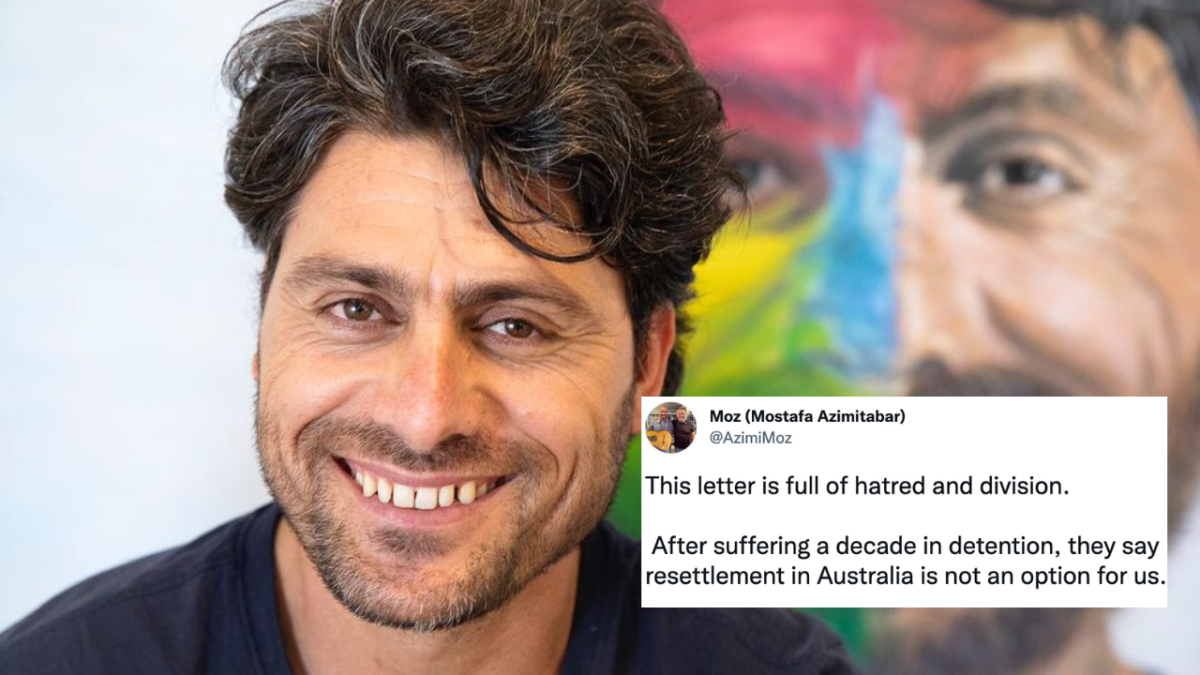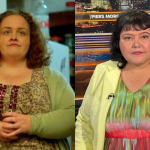
Refugees and asylum seekers who were imprisoned in Australia’s torturous offshore immigration detention for up to 10 years and are now on bridging visas have been told by the Federal Government they must leave Australia.
Farhad Bandesh, a Kurdish refugee who spent more than seven years in indefinite detention, received a letter from the Department of Home Affairs out of the blue last week that said “settlement in Australia is not an option for you”. It suggested he apply for a New Zealand or United States visa instead and that he had to advise the department of his travel plans within six days.
The letter was sent to a group of about 1,000 people who sought asylum in Australia by sea after 2013, were taken to offshore and are currently in Australia.
This letter is full of hatred and division.
After suffering a decade in detention, they say resettlement in Australia is not an option for us.
With a lot of restrictions and difficulties we’re trying to build a life.
I’d like to stay with people I love.
Day 18 pic.twitter.com/u1ul9wrmIq
— Moz (Mostafa Azimitabar) (@AzimiMoz) September 22, 2022
“When I opened the letter I thought maybe the government was going to apologise for what they have done to me and others,” Bandesh told PEDESTRIAN.TV.
“I panicked because I felt trauma again. It’s obvious, you cannot hide it, but you need to find a way to fight again.”
The artist and musician was detained at Christmas Island, Manus Island, Port Moresby and the Mantra Hotel in Melbourne’s northern suburbs. He was released in 2020 and is now on a bridging visa which allows him to work but he cannot study or access welfare payments. Bridging visas only last six months so he has to reapply every time his expires.
Despite years of uncertainty, Bandesh has a home and a life in Melbourne. He has a partner and friends and in May he launched his own Kurdish-Australian wine and spirits business, picking up the winemaking hobby he left when he was forced to flee Iran in 2013.
“It’s really, really sad,” he said.
“You’re in your home with your family, friends and the ones you love and they said you cannot stay here longer. They are taking away your life, your family and your hope.”
The letter said there were no visas in Australia Bandesh was eligible for that would allow him to stay here permanently.
“While on a bridging visa you must work and cannot study and do not know if your visa will be extended after six months,” the letter reads.
“This does not provide you with any certainty or a settlement pathway. Resettlement in New Zealand does.”
The NZ Government agreed in March to resettle 450 refugees who went through Australia’s offshore system over three years. The intake has not yet commenced. The US government also said in 2017 it would resettle up to 1,250 refugees from Manus and Nauru who would have to undergo “extreme vetting” first.
But there are approximately 800 refugees still in Australian detention and tens of thousands of refugees who hold temporary visas, waiting for permanent protection.
A Temporary Protection Visa only allows a person to stay in Australia for up to three years, instead of immediately granting them permanent protection visas. Only people who sought asylum in Australia by sea between August 2012 and December 2013 are eligible and about 31,000 people, collectively known as “the Legacy Caseload”, have held them.
These types of visas have been widely criticised as cruel and illegal under international human rights laws because they leave people in limbo and create a cycle of disadvantage and psychological trauma. According to the Asylum Seeker Resource Centre (ASRC), visaholders are saddled with uncertainty, are unable to apply for family reunion, are barred from most forms of financial support and cannot access to emergency accommodation.
Activists have been pushing for permanent protection rights for refugees in Australia for years. Organisations like ASRC, Amnesty Australia’s Game Over campaign and the Australian Refugee Action Network’s Give Them A Future campaign all argue it’s way past time to provide individuals and families with permanent visas so they can build their futures here.
Prime Minister Anthony Albanese said in the lead-up to the 2022 federal election he did not support Temporary Protection Visas but he still supports denying permanent protection to refugees who arrived after 2013 as well as offshore detention, which was created under the Gillard government.
Bandesh said the hypocrisy of the government granting permanent visas to the Nadesalingam family in May and publicising it heavily was all “fake” when countless other refugees in Australia live on temporary visas with no idea what their futures hold.
“They changed the laws, they have the ability, they are the government they make the laws. So they can easily give permanent protection to all refugees here who have been suffering for more than 10 years,” he said.
Bandesh has missed the deadline to reply to the letter from the Department of Home Affairs and has been in contact with lawyers. He said he would stay and fight for not just himself but for all other refugees in Australia.
“It’s not just about my letter,” he said.
“This isn’t about refugees who came from offshore, it’s about all refugees and asylum seekers who are suffering and in limbo for more than 10 years on Temporary Protection Visas.
I am going to fight this.
I am fighting for a change in the legislation that tortures all asylum seekers – this is not about one letter. It is about Australia and their human rights abuses. It always has been!@ClareONeilMP @AlboMP #PermanentProtection— Farhad Bandesh (@FarhadBandesh) October 4, 2022
“We need to break this cruelty down so it never happens again in Australia.”



